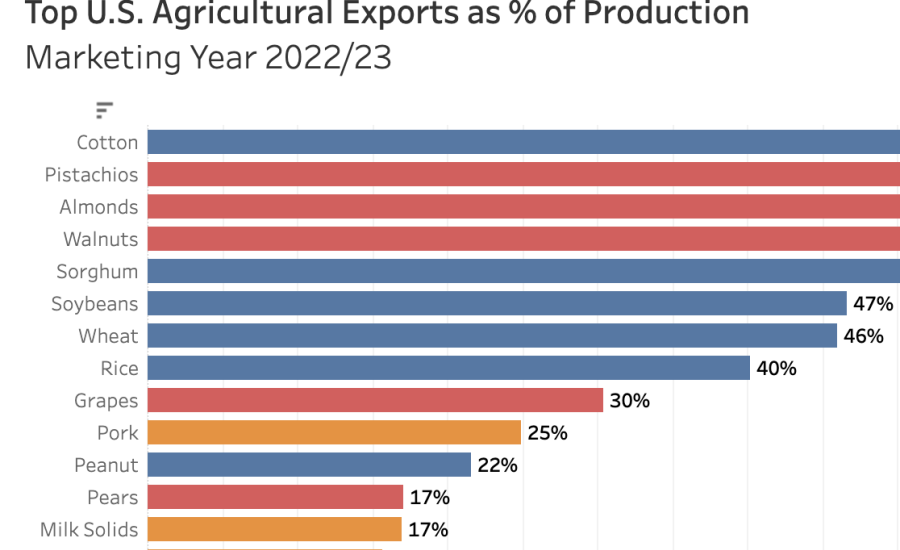Browse Data and Analysis
Filter
Search Data and Analysis
- 79 results found
- (-) Fruits and Vegetables
- (-) Corn
- Clear all
Since USDA first established a stand-alone mission area focusing on trade and international affairs in 2017, USDA’s Trade and Foreign Agricultural Affairs and the Foreign Agricultural Service have made significant trade policy advances to support U.S. agriculture. This series of commodity fact sheets highlights the many recent trade policy advances achieved by USDA.
U.S. agricultural exports are a critical source of farm income. The USDA Economic Research Service estimates that on average 23 percent of the output of nonmanufactured agricultural products were exported between 2013 and 2022.
The 2021 U.S. Agricultural Export Yearbook provides a statistical summary of U.S. agricultural commodity exports to the world.
The 2020 U.S. Agricultural Export Yearbook provides a statistical summary of U.S. agricultural commodity exports to the world. This summary lists only the United States’ primary trading partners.
South Asia, which includes Afghanistan, Bangladesh, Bhutan, India, Maldives, Nepal, Pakistan, and Sri Lanka, accounts for 24 percent of the world’s population, with 1.84 billion people in 2019.
China’s announcement of tariff exclusions following the Phase One agreement had an immediate impact on U.S. sorghum exports mainly because of the sheer volume China purchases and its effect on prices.
Weekly Report as of April 24, 2020, of COVID-19 impact on the Indian harvest of Rabi (Winter) crops.
On Wednesday, March 4, 2020 the Government of Argentina announced adjustments to its export tax regime.
Although biotechnology laws (i.e., Pakistan Biosafety Rules of 2005, Seed Amendment Act 2015 and Plant Breeders Rights Act 2018, etc.) exist in Pakistan, the rules and administrative processes....
This report updates the 2018 Agricultural Biotechnology Annual Report.
Jordan counts with increasingly westernized consumer tastes. Its 10.5 million consumers are demanding a wider variety of foreign food and agricultural products that are attractively packaged....
Salvadoran restaurants and hotels continue to benefit from growth in the tourism sector, especially the business/convention and emerging surf sectors.

